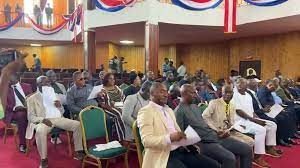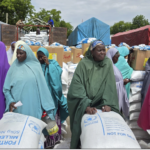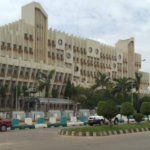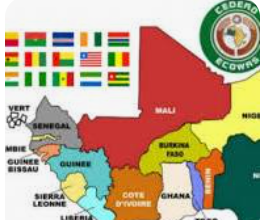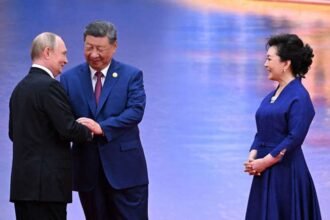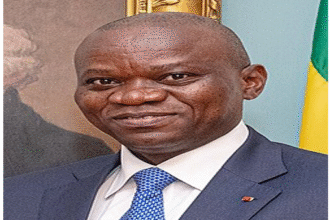By Emmanuel Sikena
Monrovia, Liberia – A stark contrast between the lavish lifestyles of Liberian lawmakers and the crippling poverty endured by the average citizen has sparked outrage and renewed scrutiny of the country’s governance. Despite ranking among the ten poorest nations globally, with many Liberians living on a meager $570 per year, members of the Liberian legislature reportedly enjoy some of the highest salaries for lawmakers in Africa.
This revelation comes as a bitter pill for the majority of Liberians, who have witnessed a decline in their living standards in recent years. According to the World Bank, the average Liberian income has plummeted from $650 in 2013 to the current $570, a staggering decrease that highlights the deepening economic hardship facing the country.
“It’s a slap in the face,” commented Sarah Johnson, a market vendor in Monrovia. “We struggle to feed our families, send our children to school, and these lawmakers are living like kings. Where is the justice?”
While the exact figures remain shrouded in some obscurity, reports suggest that Liberian legislators earn significantly more than their counterparts in neighboring countries with comparable economic profiles. This disparity has fueled accusations of corruption and a disconnect between the political elite and the everyday realities faced by the Liberian people.
The situation is further compounded by high unemployment rates and widespread underdevelopment, leaving many Liberians struggling to access basic necessities like food, electricity, healthcare, and education. Critics argue that the funds used to finance the exorbitant salaries of lawmakers could be better allocated to vital social programs and infrastructure projects that could alleviate poverty and stimulate economic growth.
Calls for greater transparency and accountability in government spending are growing louder, with civil society organizations and concerned citizens demanding a thorough review of the compensation packages for public officials. Many are advocating for a significant reduction in lawmakers’ salaries and a shift in priorities towards policies that prioritize the needs of the most vulnerable members of society.
The widening gap between the rich and poor in Liberia presents a significant challenge to the country’s stability and threatens to undermine its progress towards sustainable development. Addressing this issue requires urgent and decisive action from the government, including a commitment to fiscal responsibility, transparent governance, and a renewed focus on poverty reduction.
A growing chasm between the opulent lifestyles of Liberian lawmakers and the deplorable conditions plaguing the nation’s vital institutions is fueling public outrage and raising serious questions about resource allocation in the West African nation. Reports from across Liberia paint a grim picture of crumbling schools, understaffed hospitals, and a lack of essential resources, starkly contrasting with the perceived extravagance enjoyed by members of the Liberian government.
Across the country, schools are grappling with dilapidated infrastructure, overcrowded classrooms, and a shortage of textbooks and qualified teachers. Many rural schools operate in structures with leaking roofs and inadequate sanitation, posing significant health risks to students. Healthcare facilities fare no better, with reports of shortages in essential medicines, outdated equipment, and insufficient staff leading to preventable deaths and widespread despair.
“We send our children to school hoping for a better future, but what future is there in a building that might collapse on them?” questioned Ma Dukuly, a mother of three in rural Bong County. “Some people in government seem to care more about their own comfort than the well-being of our children.”
The stark contrast is particularly galling considering reports highlighting the comparatively high salaries and allowances enjoyed by Liberian lawmakers. Recent investigations have revealed that Liberian parliamentarians earn salaries that dwarf those of their counterparts in some Western nations, coupled with generous benefits and allowances that are often perceived as excessive in a country struggling with poverty and widespread unemployment.
“It’s a slap in the face,” stated a medical doctor working in a government hospital in Monrovia. “We are struggling to save lives with limited resources, while those in power enjoy luxurious lives and salaries that could dramatically improve our healthcare system.”
This disparity has sparked heated debates on social media and within civil society organizations. Calls for greater transparency and accountability in government spending are growing louder, with many demanding a re-prioritization of resources towards essential services like education and healthcare.
“We need to hold our leaders accountable,” declared activist Momo Kamara at a recent protest in Monrovia. “They must be reminded that they are elected to serve the people, not to enrich themselves while the country crumbles around them.”
The situation raises critical questions about the effectiveness of governance and the prioritization of national development. While economic growth is essential, critics argue that it must be inclusive and translated into tangible improvements in the lives of ordinary Liberians.
The Liberian government is yet to issue a comprehensive response to the escalating criticism. However, pressure is mounting from both within and outside the country for a serious review of budgetary allocations and a commitment to prioritizing the needs of the Liberian people over the perceived indulgence of its political elite. The future of Liberia, experts warn, hinges on addressing this glaring inequality and investing in the fundamental pillars of a functioning society: education and healthcare.


